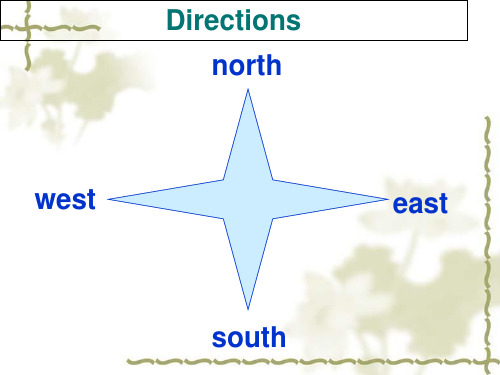(完整版)新概念第一册55课课件
新概念英语第一册55-56-PPT课件

What do they usually do?
In the morning...... At noon...... In the afternoon...... In the evening...... At night......
Homework
Talk about your family
breakfast supper/dinner
The eating habits of Americans
美国人的饮食习惯
Breakfast
Breakfast time, the general in 8:00 They always eat baked bread, cereal and coffee,
3. At noon, who always eats lunch at home? Mr. or Mrs. Sawyer?
Mrs. Sawyer.
4. In the afternoon, what does Mrs. Sawyer usually do? What do they often do? She usually sees her friends. They often drink tea together.
到达……( 大地方) 到达……(小地方)
My father will arrive __i_n_ London tomorrow. I often arrive __/__home early in the evening.
Let’s read and remember the new words:
his wife watch television.
do one's homework 做作业
新概念英语第一册第55-56课件(共25张PPT)

表述客观规律或事实用一般现在时
The plane can fly in the sky. The earth goes around the sun. The book is yellow. He is tall. He is very smart! She is very beautiful!
谢谢观赏
You made my day!
我们,还在路上……
What do you usually do in the weekend? in your vacation?
Do some exercises: 1. ( c ) I often _____ up at 7:oo in the morning. My mother often
_____up at 6:30. A. get, get B. gets, gets C. get, gets D. gets, get 2. (B )Jim’s brother ____ in a factory. He usually _____ to work by car. A. work, go B. works, goes C. works, go D. work, goes 3. (A) ____ you always ____ basketball on Sundays? A. Do, play B. Does, play C. Are, playing D. Are, play 4. (D) _____ your father often____ TV in the evening?
Does she often do her homework at night?
Lesson 56 What do they usually do?
新概念英语第一册第55课

Lesson 55: The Greenwood BoysLast week at a party, I met some friends of my sister's. They were charming boys from the south of England. One of them came up to me and asked me if I would like to go to the pictures with him and his friends. I was very happy to accept.They took me to a wonderful film at the local cinema. After the film, we went to a restaurant for dinner. We had a great time together. They were such nice boys!The next day, I received a telephone call from one of the boys. He asked me if I would like to join them on a small trip they were planning. I thought about it for a moment, and then I said yes.They told me that they were going to spend a few days in the country. They planned to stay in a small hotel outside the town. I was very excited about the trip.We set off early in the morning in two cars. It took us about an hour to reach the hotel. It was a lovely old building in a beautiful garden.In the afternoon, we went for a walk in the woods nearby. We saw some amazing birds and animals. In the evening, we played cards and talked together. It was a really enjoyable day.The next day, we went horse riding in the countryside. It was so much fun! We also visited a local farm and saw some cows and sheep.On the last day of our trip, we decided to go sailing on the lake near the hotel. It was a bit windy, but we still had a great time.When it was time to leave, we all got into our cars and drove back home. I had such a wonderful time with those charming boys from the south of England!。
新概念一册L55-L56课课件

usually adv. 通常
频率副词:指经常发生的习惯性的动作,与一般现在时连用 always总是 usually通常 often经常 sometimes有时 never从不
eg:你下午经常干什么?我经常玩电脑 -What do you usually do in the afternoon? -I usually play computer.
Mrs. Sawyer stays at home every day. She does the housework.
1.the Sawyers是指索耶一家人,在英文中,姓氏后面加-s,前面加定冠词the,用来指一家人 2.live at…住在…(后接小的地点)live in…住在…(大地点) 3.in the morning在上午 in the afternoon/ evening在下午/晚上 at noon在中午 at night在晚上 4.go to work 去上班 go to school去上学 5.take sb.(某人)to sp.(某地)---这里的sb.用人称代词宾格(me/us/you/him/her/it/them) 6.stay at home待在家 7.do the housework做家务
At night, the children always do their homework. Then they go to bed. Mr. Sawyer usually reads his newspaper, but sometimes he and his wife watch television.
hometown家乡 homework家庭作业
housework n.家务(不可数名词)
• do the housework 做家务 • eg:我妈妈每天做家务。
新概念第一册55--56课课件

语法点:一般现在时
指经常发生,习惯性的动作。 时间状语一般是 usually, always, often, sometimes every day等 I often go the school by bike. I do my homework every day. He always late. 主语是第三人称单数时,动词要加-s
together 一起
We always go home together .
我们总是一起回家。
Let’s go to school together !
让我们一起上学去吧!
lunch 午饭
have / eat lunch 吃午饭
I often have / eat lunch at 12:30.
Key Structures
1.Mr. Sawyer stays at home every day. 2.She always eats her lunch at noon. 3.She usually sees her friends. 4.They often drink tea together. 5.The children always do their homework. 6. Mr. Sawyer usually reads his newspaper, but sometimes he and his wife watch television.
• What does your father/mother do?
• What do you do after school everyday?
• What do your parents do after work everyday?
新概念英语第一册 55-56课课件

Say soAmnestwheinrgthaebseouqtueysotuiornfsamily with the help of these questions • Where are you from? • How many people are there in your family? • Who are they? • How old is your father/mother ? • What does your father/mother do? • What do you do after school everyday? • What do your parents do after work everyday?
3) T: Who takes the children to school every day? S: Mr. Sawyer does.
4) T: What does Mrs. Sawyer do every day? S: She stays at home .
5) T: When does she eat her lunch? S: She eats her lunch at noon.
e on, don't go around the houses.
说,别兜圈子了。
3.Eat to live, but not live to eat.
吃饭是为了活着,但是活着不是为了吃饭
w words and expressions: v. 住,生活
y v. 呆在,停留 me n. 家;adv. 在家,到家
表达地址时,在 具体的门牌号前 要用at,在城市 或者街名前要用
in
In the morning, Mr. Sawyer goes to work and the children go to school. Their father takes them to school every day.
新概念第一册Lesson 55PPT
用餐have/ eat: breakfast 早餐–lunch午餐—dinner 晚餐(=supper)
snack n.零食 meal [miːl] n.餐 instant noodles n.方便面
The children come back from school.
come…from 从……回…… eg: I just came back from Spain. My mom comes back from the butcher’s.
together adv.一起 固定词组: together with
1)I go to school together with my best friend. 2)We spent a week together. Tips: afternoon tea
Afternoon tea Time: 2:00pm— 5:00pm
home house family
home n. 家, 家乡 (=hometown) adv.在家,到家 house 房子,住宅 family 家庭,家庭成员 我的房子很大,而且它是粉色的。 我周末总是呆在家里做家庭作业。 我家有五口人。 My house is big, and it is pink. I always do homework at home on weekends. There are five people in my family. slang: East or west, home is best.
Italy 意大利 Italian 意大利人 Norway 挪威 Norwegian 挪威人 Spain 西班牙 Spanish 西班牙人 Russia 俄罗斯 Russian 俄罗斯人 Sweden 瑞典 Swedish 瑞典人 Greece 希腊 Greek 希腊人
新概念第一册_L55-L56课件
句重 式点
1表示经常的或习惯性的动作,常与表示频度的时 间状语连用。 2.表示主语具备的性格、能力和特征。 3.表示现在的状态。 4.表示客观事实和普遍真理。 5.在时间状语从句和条件状语从句中,常用一般现 在时代替将来时。 6.表示预先计划或安排好的行为。 7.小说故事用一般现在时代替一般过去时。
• Take sb to someplace. Eg: He takes his son to school.
• arrive是不及物 动词,在它后面 不可以直接跟名 词作为宾语, • 如:arrive at a village arrive in Shanghai
• The Sawyers live at 87 King Street. In the morning, Mr. Sawyer goes to work and the children go to school. Their father takes them to school every day. Mrs. Sawyer stays at home every day. She does the housework. She always eats her lunch at noon. In the afternoon, she usually sees her friends. They often drink tea together. In the evening, the children come home from school. They arrive home early. Mr. Sawyer comes home from work. He arrives home late. At night, the children always do their homework. Then they go to bed. Mr. Sawyer usually reads his newspaper, but sometimes he and his wife watch television.
最新新概念第一册第55-56课课件精品课件
eats her lunch
sees her friends, drink tea together
come home from school, arrive home early
comes home from work,
arrives home late
将下列方框(fānɡ kuànɡ)中介词填到下面的题目中。
in, at, to, from
My
uncle the
stays ____ evening.
home
in
thaet
day
and
goes
to
work
___
He goes _____ work early and heincomes home ____ work
第三页,共28页。
[ 'iːvnɪŋ ]
[ lʌntʃ ]
[ naɪt ]
第四页,共28页。
lunch
午饭(wǔfàn)
evening
晚上(wǎn shang)
第五页,共28页。
live 住;生活(shēnghuó); 直播
The Sawyers live at 87 King Street.
第十六页,共28页。
写出下列动词的第三人称单数(dānshù)形式:
see__s_e_es give___g_iv_eslive____livewsatch_____
do____wawtachlke_s____dowesant____ wgaolk_s_____
shine_____ play_______
Lesson 55
新概念英语NCE1_Lesson55-56(共17页)课件
Listen then answer
The Sawyers live at 87 King Street.
listen to the music
shave
watch TV
read newspaper
go to school
drink water
•1、书籍是朋友,虽然没有热情,但是非常忠实。2022年3月24日星期四2022/3/242022/3/242022/3/24 •2、科学的灵感,决不是坐等可以等来的。如果说,科学上的发现有什么偶然的机遇的话,那么这种‘偶然的机遇’只能给那些学有素养的人,给那些善于独 立思考的人,给那些具有锲而不舍的人。2022年3月2022/3/242022/3/242022/3/243/24/2022 •3、书籍—通过心灵观察世界的窗口.住宅里没有书,犹如房间里没有窗户。2022/3/242022/3/24March 24, 2022
In the morning, Mrs. Sawyer goes to work and the children go to school. Their father takes them to school every day.
Mrs. Sawyer stays at home every day. She does the housework. She always eats her lunch at noon.
Mr. Sawyer comes home from work. He arrives home late.
- 1、下载文档前请自行甄别文档内容的完整性,平台不提供额外的编辑、内容补充、找答案等附加服务。
- 2、"仅部分预览"的文档,不可在线预览部分如存在完整性等问题,可反馈申请退款(可完整预览的文档不适用该条件!)。
- 3、如文档侵犯您的权益,请联系客服反馈,我们会尽快为您处理(人工客服工作时间:9:00-18:30)。
A.in
B.on
C.at
D.of
2. ____B___season do you like best?
A.What B.Which C.When 3.Where__C____you come from?
D.Where
A.are
④eats her lunch
⑤sees her friends ; drink tea togrther
The children
②go to school
⑦comes home from work
⑨reads his newspaper;
⑩ watches television
⑩watches television
Mr. Sawyer
Mrs. Sawyer
in the morning
at noon
in the
in the
afternoon evening
at night
Mr. Sawyer
Mrs. Sawyer
①goes to work takes them to school
③stays at home; does the housework
B.is
C.do
D.am
4.What do you usually do__C___the C.in
D.of
5.People do different things __B____their daily life.(日常生活)
A.on
B.in
C.of
D.at
wash face take a bath do housework brush the teeth
play sports play computer go to bed wash the clothes
clean the floor
make the bed
go for a walk
do morning exercises
I usually________ every day.
1
计时 开始
1 3 5 7 9 11 13 15 17 19 21 23 25 27 29
have-has be-am, is, are
一般现在时:
1. 表示经常发生的、习惯性的动作或者是存在的状态时: 例如: I usually go to school on foot. She is always late for school. He comes from England.
“go to +场所” 来表示一种行为 go to hospital/ prison/ school/ bed 去看病/ 去坐牢/ 上学/ 上床休息
“go to the + 场所” 去某个场所 go to the hospital/ prison/ school/ bed 去(某)个医院/监狱/学校/床边
⑥come home from school
⑧do their homework;
go to bed
The Sawyers live at 87 King Street.
The Smiths/The Zhangs
live :住,生活
live
in+大地方
arrive
at+小地方
(一条街,一栋楼)
以辅音字母+y 变y 为i再加es 结尾的词
例词
swim-swims;like-likes; watches, washes goes, does study-studies
以元音字母+y 结尾的词
不规则变化 have和be动词
加 -s
变have 为 has 变be为 am,is,are
plays, enjoys
on a hot summer eveningon a winter afternoon on Sunday morningon the night of May 24, 2010
具体的某一天用 on They arrive home early.
Mr. Sawyer comes home from work. He arrives home late.
扩展
“in +场所”
来表示一种行为
in hospital/ prison/ school
住院/ 坐牢/ 上学/
“in the + 场所”表示在某个地方 in the hospital/ prison/ school
在(某)个医院/监狱/学校/
当主语是第三人称 单数时
一般情况
加 -s
以s,sh,ch,x.o等 加 -es 结尾的词
2
计时 开始
1 3 5 7 9 11 13 15 17 19 21 23 25 27 29
3
计时 开始
1 3 5 7 9 11 13 15 17 19 21 23 25 27 29
4
计时 开始
1 3 5 7 9 11 13 15 17 19 21 23 25 27 29
The Sawyer family
到达
In the morning,
Mr. Sawyer goes to work
and the children go to school.
Their father takes them to school every day.
take sth/sb to sp.:带某物或某人带到某处
Mrs. Sawyer stays at home every day. She does the housework.
Does she do the housework?
She always eats her lunch at noon. has
In the afternoon, she usually sees her friends.
They often drink tea together.
In the evening, the children come home from school.
At night, the children always do their homework.
Do the children always do their homework?
Then they go to bed.
go to the bed:上床(可能在看书,不一定睡觉)
Mr. Sawyer usually reads his newspaper, but sometimes he and his wife watch television.
